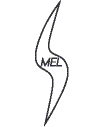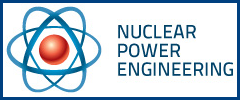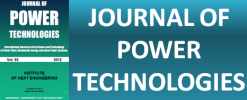ul. Nowowiejska 21/25
00-665 Warszawa
phone: (+48) 22 234 5236
phone: (+48) 22 825 6965
fax: (+48) 22 825 0565
e-mail:
sekretariat.itc@pw.edu.pl
NIP: 525-000-58-34
REGON: 000001554
Reception desk:
(+48) 22 234 5219,
(+48) 609 881 196
|
|
|
|
|
|
|
|
|
|
|
|
|
|
The Institute of Heat Engineering was established in 1961.
Professor Bogdan Stefanowski can definitely be considered as the founder of a strong and modern Institute of Heat Engineering playing a leading role in Poland in the field. He started his efforts as early as in the 1950s. At the first stage, according to the project the Institute should had been established as a federation the two Chairs headed by Professor Stefanowski, i.e., Chair of Theory of Heat Machines and Chair of Cooling as well as Division of Thermopower of Polish Academy of Sciences (PAS). Besides these Chairs on the premises of the Institute the following Chairs and Divisions were situated: Chair of Steam Boilers; Chair of Thermal Turbines; Chair of Water Engines and Pumps; Chair of Combustion Engines; Chair of Industrial Equipment and Devices. The aforementioned 7 Chairs and the Division of PAS together with the established Organizing Team constituted the Institute of Heat Engineering in 1961.
With its staff comprising of 87 persons (50 of them are the research staff) and in the view of 17 professors and associated professors employed, the Institute can be regarded as one of the institutes at Warsaw University of Technology having the greatest scientific capacity. The history of the Institute dates back to as early as the 1950s, when Professor Bogdan Stefanowski started his efforts in founding a strong and modern institute of heat engineering that could play a leading role in Poland in the field.
Nowadays, the institute comprises of the following divisions: Division of Thermodynamics, Division of Refrigeration and Process Equipment, Division of Aeroengines, Division of Power Engineering and Division of Pumps, Drives and Plants and three special laboratories for Computer Sciences, Thermovision Services and Combustion Laboratory of Aeroengines Division. Most of the researchers working for the institute are well known specialists, recognised as prominent experts.
The research activities of the Institute of Heat Engineering are pursued in the following main areas: cooling and air conditioning; low temperature technology;; clean coal technologies; fluidised boilers; methods for modelling of boilers and turbines under off-design conditions; research methods in transitional states; power system structures; communal and industrial power economy; fuel cells in power technology; flow and heat meters (for certification purposes); retrofits of small and medium size steam turbines; retrofits of steam boilers, especially the fluidised ones; power unit simulators; advanced control devices; reliability problems in power engineering systems and energy supply; centrifugal pumps; power plants; power management (environmental protection, central heating); characteristics of large pumps - in situ measurements; experimental studies of combustion phenomena such as: ignition, flame propagation, detonation of gaseous and heterogeneous mixtures, flammability and explosibility limits, suppression of combustion and explosions; shock wave interaction with flames and dust layer; combustion in piston, turbine and rocket engines, alternative fuels - hydrogen, natural gas and hydrogen safety; combustion chambers and burners; computer simulations of combustion and detonation processes; measurement and recording of extremely high speed processes; small propulsion systems for satellites; measurement of thermal properties; heat storage; computer methods in heat transfer; thermo-electric energy conversion, cooling, electric current generation; heat transfer in complex media (porous media, thermal insulations, composites); heat transfer with phase changes and in combustion engines; laser shock effects on solids; heat transfer in combustion engines; laser shock effects on solids; photo-thermal solar energy conversion; sources and energy conversion; heat transfer in extremely loaded blades and elements of aircraft engines.
In 1999, in cooperation with the Institute of power Engineering (Warsaw), the Institute of Fundamental Technological Research - Polish Academy of Sciences (Warsaw), the Institute of Aviation (Warsaw) and General Mining Institute (Katowice), this Institute established the Integrated Heat Laboratory (IHL). The IHL aims at solving the following research problems: transitional states in hydrogen turbines; dynamics of industrial dust explosions and methods for their suppression; controlled combustion in engines and burners; low emission processes of coal burning in energy boilers; new multi-criteria methods for power installation control; application of low temperature plasma techniques to anti-erosion coatings and heat barriers and toxic-waste utilisation; thermal properties of materials and their stability under phase changes; visualization and modelling of phase change processes at binary systems and heterogenic boiling; application of low temperature energy storage processes to cooling and air conditioning.
The scientific capabilities and strength of the Institute manifest through a number of about 330 articles published over the last three years (34 of them in international journals). It should be noted as well, that 17 monographs have been published presenting both the achievements and the experience gathered by the staff.
The Institute promotes international co-operation with famous scientific centres all over the world. The following well known institutes engaged in co-operation should be mentioned: Nanjing University of Science and Technology, Nanjing, China; Industrial Explosion Protection Institute, Northestern University of Shenyang, China; Nagoya University, Nagoya, Japan; Aoyama Gakuin University, Tokyo, Japan; Institute for Energy Utilization, Tsukuba, Japan; San Diego State University, USA; University of Michigan, Ann Arbor, USA; Pratt and Whitney, East Hartford, USA; National Technical University for Civil Aviation, Moscow, Russia; University of Western Australia, Perth, Australia; Institute of High Performance Computing, A-Star, Singapore; BAM, Berlin, Germany. The Institute also takes part in the established partnership between Warsaw University of Technology and The School for Renewable Energy Science (RES) in Akureyri, Iceland. The great achievements of the Institute are commonly acknowledged in the scientific community, which is reflected by a number of nearly 150 scientists from 10 countries who have visited the Institute for the last three years., while over fifty of the staff members visited foreign universities (15 of them were visiting professors).
The scientific excellence of the Institute also reflects in four FP 5 and 6 European projects as well as in one COST Action the staff members are currently engaged in. There are a number of important scientific events organised by and at the Institute that should be mentioned: 29th International Symposium on Combustion (2002), 9th International Conference on Thermal Energy Storage FUTURESTOCK 03 (2003), 3rd International Conference on "Development Tendencies in Space Propulsion Systems" (" (since-1999), Renewable Energy, Innovative Technologies and New Ideas (2008), Research & Development in Power Engineering (since -1993).
Some important achievements of the Institute should be emphasized here, especially in the field of the development of new research methods:
- New methods for simulation of transient processes in a power plant
- Methods for combustion optimisation in coal boilers that employ the neural networks
- Rotating Detonation Engines (air-breathing and rocket)
- New method of 3-D flame imaging by means of Electrical Capacitance Tomography
- Super fast active methods of explosion suppression
- Original methods for mathematical modelling and experimental investigation of gases and dust combustions and explosions
- New methods for mathematical modelling and visualization of combustion processes in IC engines, turbojets and rockets;
- Effective full-field visualization techniques and computer simulation methods for velocity and temperature fields in heat transfer and fluid flow problems.
The New Total Power Plant Performance Monitoring System has been invented and constructed at the Institute, as well as a new idea of considering a spiral heat exchanger as a latent heat thermal energy storage unit has been put forward.








